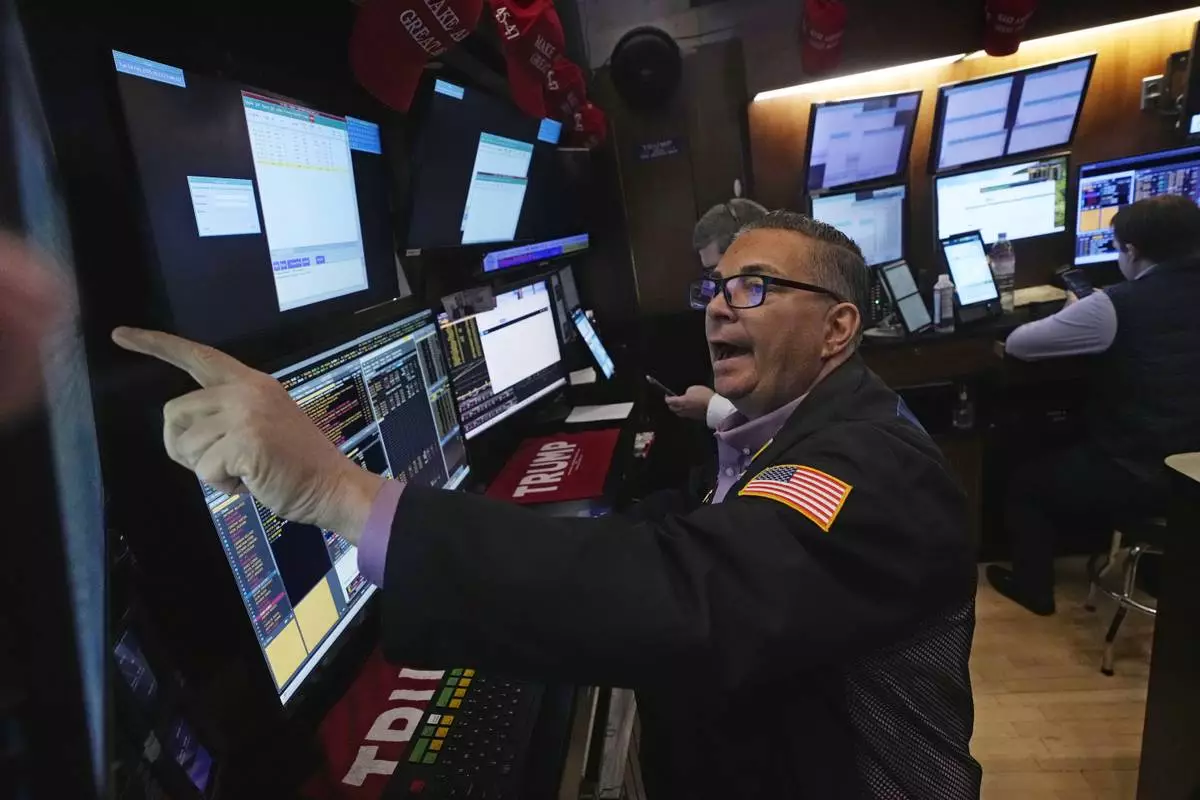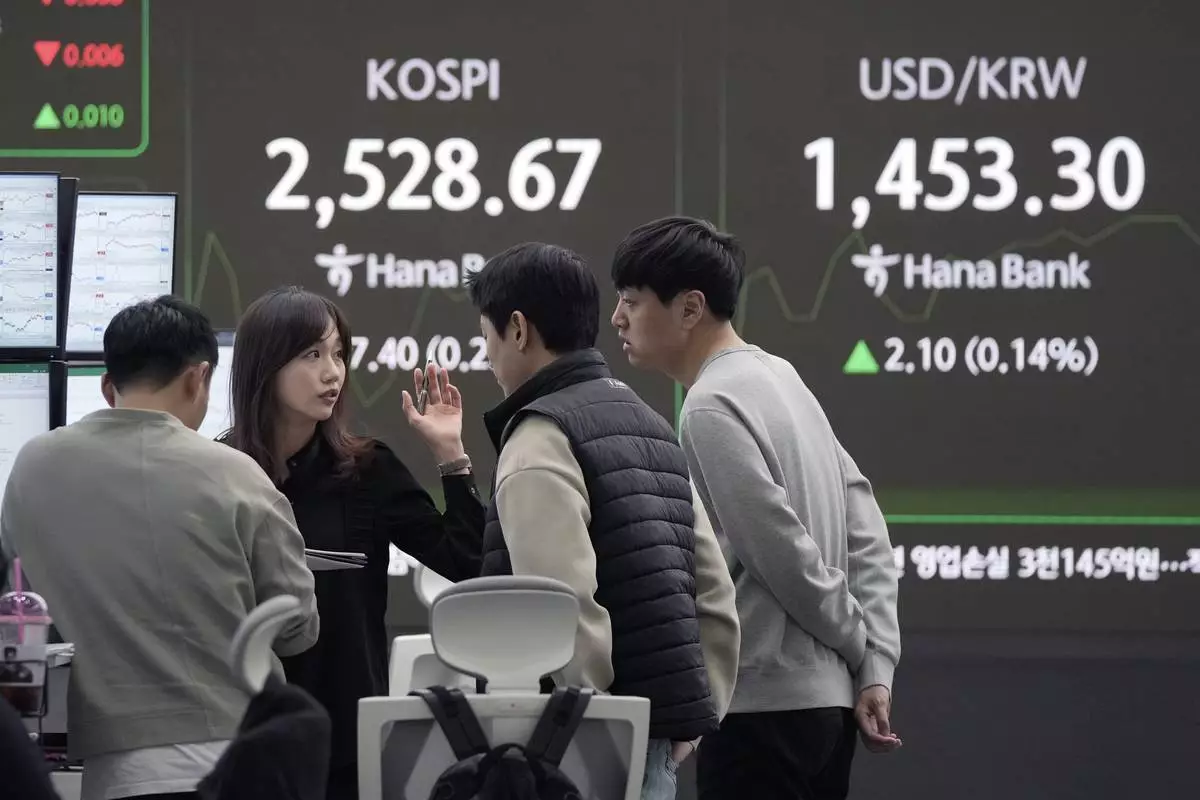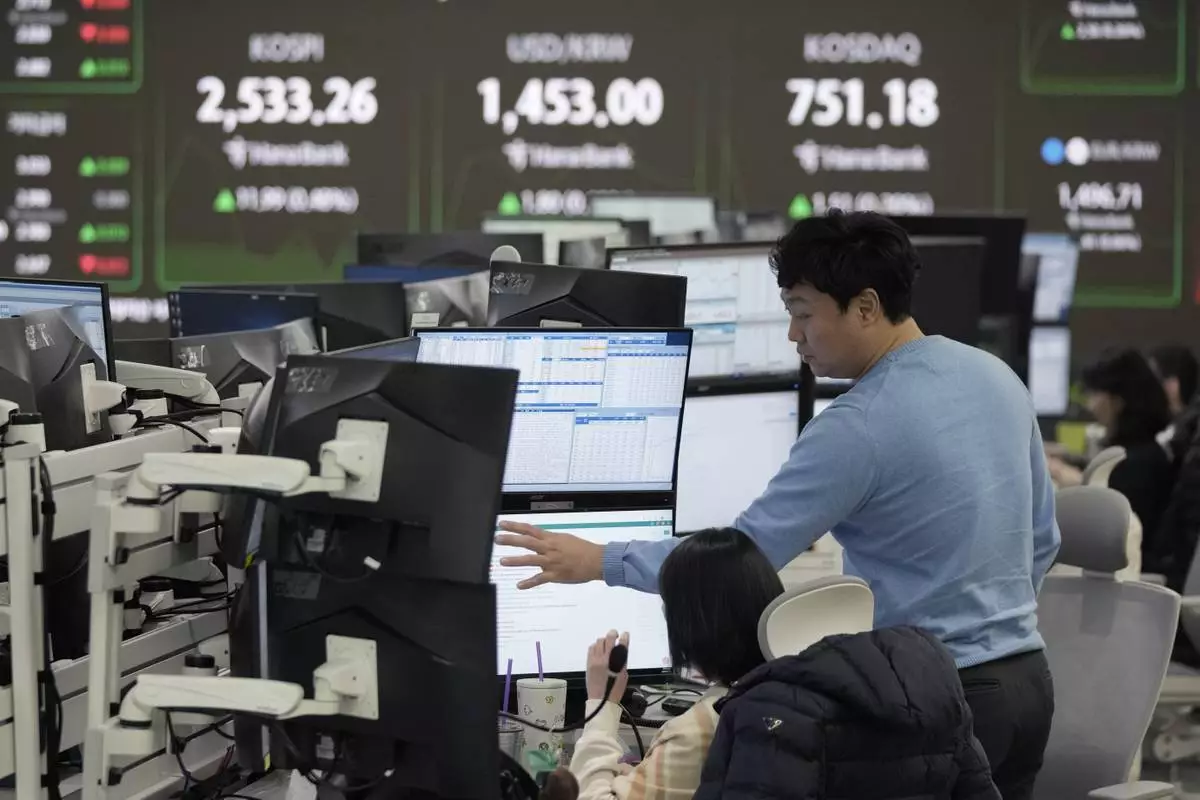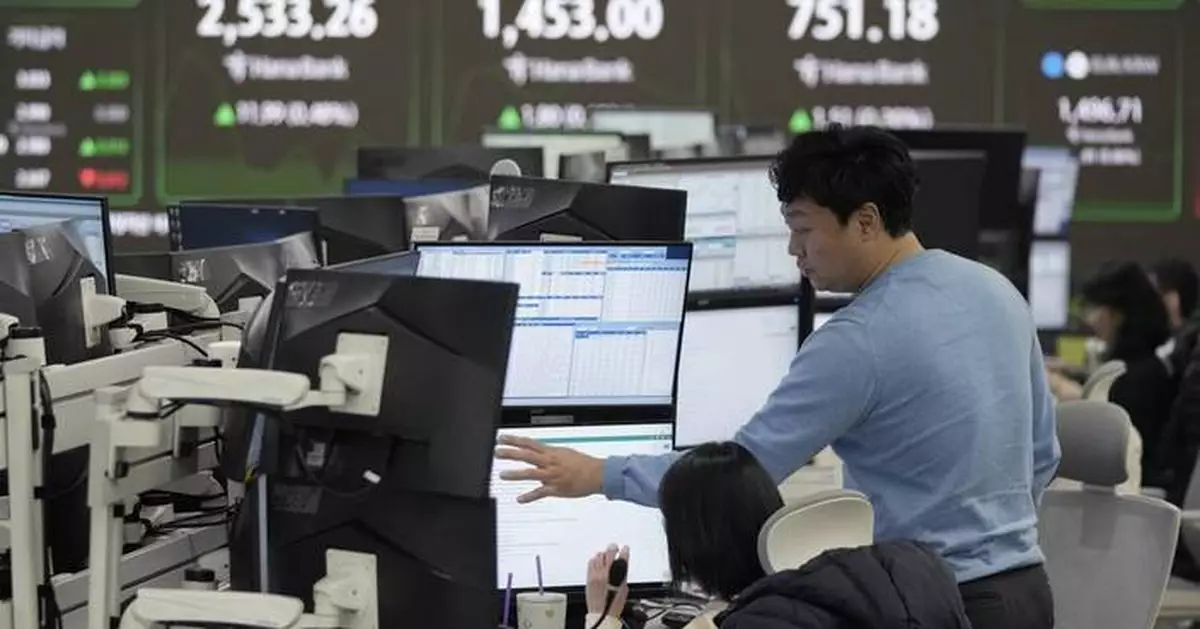NEW YORK (AP) — Wall Street held relatively firm on Tuesday following President Donald Trump’s latest tariff escalation and after the Federal Reserve hinted interest rates may not change for a while.
The S&P 500 was virtually unchanged and edged up by less than 0.1% in the market’s first trading since Trump announced 25% tariffs on all foreign steel and aluminum coming into the country. The Dow Jones Industrial Average added 123 points, or 0.3%, and the Nasdaq composite slipped 0.4%.
The moves were modest not only for U.S. stocks but also in the bond market, where Treasury yields rose by only a bit.
The threat of a possible trade war is very real, of course, with high potential stakes. Most of Wall Street agrees that substantial and sustained tariffs would push up prices for U.S. households and ultimately lead to big pain for financial markets around the world. The European Union’s chief, Ursula von der Leyen, said on Tuesday that “unjustified tariffs on the EU will not go unanswered — they will trigger firm and proportionate countermeasures.”
But trading remained mostly calm in part because Trump has shown he can be quick to pull back on such threats. That’s what he did earlier with 25% tariffs he had announced for all imports from Canada and Mexico, suggesting tariffs may be merely a negotiating chip rather than a true long-term policy. That in turn has much of Wall Street hoping the worst-case scenario may not happen.
“The metal tariffs may serve as negotiating leverage,” according to Solita Marcelli, chief investment officer, Americas, at UBS Global Wealth Management.
In the meantime, much of Wall Street’s focus on Tuesday swung to a different part of Washington. Federal Reserve Chair Jerome Powell said again in testimony on Capitol Hill that the Fed is in no hurry to ease interest rates any further.
The Fed had cut its main interest rate sharply through the end of last year, hoping to give a boost to the economy. But worries about inflation potentially staying stubbornly high have forced the Fed and traders alike to cut back expectations for cuts in 2025. Some traders are even betting on the possibility of zero, in part because of worries about the effects of tariffs.
“We’re in a pretty good place,” Powell said about where the economy and interest rates are currently. He said again he’s aware that going too slowly on rate cuts could damage the economy, while moving too quickly could push inflation higher.
Higher rates tend to put downward pressure on prices for stocks and other investments, while pressuring the economy by making borrowing more expensive. That could be risky for a U.S. stock market that critics say already looks too expensive. The S&P 500 is not far from its all-time high set late last month.
One way companies can offset such downward pressure on their stock prices is to deliver stronger profits. And big U.S. companies have been mostly doing just that recently, as they report how much profit they made during the last three months of 2024. That, though, hasn’t always been enough.
Marriott International fell 5.4% even though it reported a better profit for the latest quarter than analysts expected. Investors focused instead on its forecasted range for an important underlying measure of profit this upcoming year, which fell short of what analysts were expecting.
Humana sank 3.5% despite reporting a milder loss than analysts expected. The insurer and health care company offered a forecast for profit in 2025 that fell short of Wall Street’s expectations.
Helping to offset such losses was Coca-Cola, which rallied 4.7% after reporting stronger profit and revenue than analysts expected. Growth in China, Brazil and the United States helped lead the way.
DuPont climbed 6.8% after the chemical company likewise reported better profit than Wall Street expected.
All told, the S&P 500 rose 2.06 points to 6,068.50. The Dow Jones Industrial Average rose 123.24 to 44,593.65, and the Nasdaq composite fell 70.41 to 19,643.86.
In the bond market, the yield on the 10-year Treasury rose to 4.53% from 4.50% late Monday. The two-year Treasury yield, which moves more closely with expectations for upcoming action by the Fed, held steady. It remained at 4.28%, where it was late Monday.
In stock markets abroad, indexes were mixed across Europe and Asia. Hong Kong’s Hang Seng fell 1.1%, and South Korea’s Kospi rose 0.7% for some of the bigger moves, while Japanese markets were closed for a national holiday.

FILE - Trader Jonathan Mueller works on the floor of the New York Stock Exchange, Tuesday, Feb. 4, 2025. (AP Photo/Richard Drew, file)

A currency trader passes by a screen showing the Korea Composite Stock Price Index (KOSPI), top center left, and the foreign exchange rate between U.S. dollar and South Korean won, top center, at the foreign exchange dealing room of the KEB Hana Bank headquarters in Seoul, South Korea, Tuesday, Feb. 11, 2025. (AP Photo/Ahn Young-joon)

Currency traders work near a screen showing the Korea Composite Stock Price Index (KOSPI) and the foreign exchange rate between U.S. dollar and South Korean won, top right, at the foreign exchange dealing room of the KEB Hana Bank headquarters in Seoul, South Korea, Tuesday, Feb. 11, 2025. (AP Photo/Ahn Young-joon)

Currency traders watch monitors at the foreign exchange dealing room of the KEB Hana Bank headquarters in Seoul, South Korea, Tuesday, Feb. 11, 2025. (AP Photo/Ahn Young-joon)


















